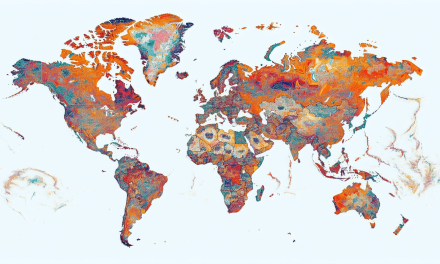Planning a trip to Zambia? It’s important to prioritize your health and ensure a safe journey. Before embarking on your adventure, it is crucial to be aware of the necessary vaccinations recommended for travel to this captivating African country. Vaccinations such as yellow fever, typhoid, tetanus, and hepatitis A are some of the key immunizations that experts suggest obtaining prior to your trip. By taking these precautions, you can enjoy your time in Zambia while minimizing the risk of contracting preventable diseases.
Vaccination Requirements for Zambia
Yellow Fever Vaccination
Before traveling to Zambia, it is important to be aware of the vaccination requirements to ensure your health and safety. One of the key vaccinations recommended for Zambia is the Yellow Fever vaccination. This vaccination is necessary for all travelers aged nine months and above, unless they are exempted due to medical reasons. Yellow Fever is a serious viral disease transmitted by mosquitoes, and it can lead to severe illness or even death. Therefore, it is crucial to protect yourself against this disease by receiving the Yellow Fever vaccine.
Routine Vaccinations
In addition to the specific vaccinations required for Zambia, it is also essential to ensure that your routine vaccinations are up to date. Routine vaccinations include immunizations such as MMR (Measles-Mumps-Rubella), Varicella (Chickenpox), Polio, and Tetanus-Diphtheria-Pertussis (Tdap). These routine vaccinations protect against common diseases and ensure that your immune system is equipped to fight off potential infections. It is recommended to consult with your healthcare provider to verify the status of your routine vaccinations before traveling to Zambia.
Mosquito-Borne Diseases
Malaria Prophylaxis
Mosquito-borne diseases are prevalent in Zambia, and one of the most common and serious ones is malaria. Malaria is transmitted through the bite of infected mosquitoes and can lead to severe illness, including high fever, chills, and flu-like symptoms. To protect yourself against malaria, it is essential to take antimalarial medication, also known as malaria prophylaxis. Different medications are available, and it is advisable to consult with your healthcare provider to determine the most suitable option for you based on your medical history and travel plans.
Dengue Fever
Another mosquito-borne disease that poses a risk in Zambia is Dengue Fever. Dengue is transmitted by the Aedes mosquito, and symptoms include high fever, severe headache, joint and muscle pain, and rash. There is currently no specific vaccine available for Dengue Fever. However, you can reduce the risk of contracting the disease by taking measures to avoid mosquito bites, such as using insect repellent, wearing protective clothing, and staying in accommodations with proper mosquito control.
Water and Foodborne Diseases
Typhoid Vaccination
Water and foodborne diseases are common, especially in developing countries like Zambia. One of the recommended vaccinations for travelers is the Typhoid vaccine. Typhoid Fever is a bacterial infection transmitted through contaminated food and water. Symptoms include high fever, headache, stomach pain, and diarrhea. To protect yourself against Typhoid Fever, it is crucial to receive the Typhoid vaccine before traveling to Zambia. Additionally, practicing safe food and water precautions, such as drinking bottled water, avoiding street food, and practicing proper hand hygiene, can further reduce the risk of contracting this disease.
Hepatitis A Vaccination
Hepatitis A is another water and foodborne disease that poses a risk in Zambia. It is a viral infection that affects the liver and is transmitted through contaminated food and water or close contact with an infected person. Symptoms include fatigue, nausea, jaundice, and abdominal pain. Vaccination against Hepatitis A is strongly recommended before traveling to Zambia, as it provides long-lasting protection against the disease. It is also important to follow good hygiene practices, such as washing your hands regularly, to reduce the risk of Hepatitis A.
Cholera
Cholera is an acute diarrheal disease caused by ingestion of food or water contaminated with the bacterium Vibrio cholerae. While the risk of cholera in Zambia is relatively low, it is still advisable to take precautions to prevent infection. Safe food and water practices, including drinking bottled or boiled water and avoiding raw or undercooked seafood, can help reduce the risk. Additionally, practicing good hygiene, such as regular handwashing with soap and using hand sanitizers when necessary, is essential.
Traveler’s Diarrhea
Traveler’s Diarrhea is a common ailment that affects many travelers, regardless of their destination. It is usually caused by consuming contaminated food or water. To minimize the risk of Traveler’s Diarrhea, it is important to follow safe food and water practices. This includes drinking bottled water, avoiding tap water and ice cubes, and only consuming properly cooked and hot food. In case you experience symptoms of diarrhea, it is advisable to carry over-the-counter medications, such as antidiarrheal drugs, to manage the symptoms.
Respiratory Diseases
Influenza Vaccination
Respiratory diseases, including Influenza, can be a concern when traveling. Influenza is a viral infection that affects the respiratory system and is highly contagious. To protect yourself and others from contracting and spreading the flu, it is recommended to receive the annual Influenza vaccine before your trip. The vaccine is especially important for individuals with underlying medical conditions, young children, and the elderly who may be more susceptible to severe complications from the flu.
Pneumococcal Vaccination
Pneumococcal disease is caused by the bacteria Streptococcus pneumoniae and can result in severe illnesses such as pneumonia, meningitis, and bloodstream infections. The Pneumococcal vaccine is recommended for individuals who are at higher risk of developing these conditions, including young children, older adults, and those with certain medical conditions. It is advisable to consult with your healthcare provider to determine if you should receive the Pneumococcal vaccine before traveling to Zambia.
Sexually Transmitted Infections
Hepatitis B Vaccination
Hepatitis B is a viral infection that affects the liver and is transmitted through contact with contaminated blood or other body fluids. It can be spread through sexual contact, sharing of needles, or from mother to child during childbirth. Vaccination against Hepatitis B is generally recommended for all individuals, especially those who may engage in activities that put them at higher risk, such as unprotected sex, drug use, or medical procedures. It is important to receive the vaccine before traveling to Zambia to lower the risk of infection.
Human Immunodeficiency Virus (HIV)
HIV is a sexually transmitted infection that affects the immune system and can lead to AIDS if left untreated. Precautions should be taken to prevent HIV transmission, including practicing safe sex, using condoms, and avoiding sharing needles or other injection equipment. It is important to be aware of the risks and take necessary precautions to protect yourself during your travels in Zambia.
Animal-Borne Diseases
Rabies Vaccination
Rabies is a deadly viral disease that is transmitted through the bite or scratch of an infected animal, most commonly dogs. Rabies vaccinations are highly recommended for travelers to Zambia, especially if you plan to have close contact with animals or engage in activities such as wildlife viewing or handling stray animals. It is crucial to avoid direct contact with animals, especially those exhibiting unusual behavior, and to seek immediate medical attention if you are bitten or scratched by an animal.
Routine Vaccinations
Measles-Mumps-Rubella (MMR) Vaccine
The MMR vaccine is essential to protect against measles, mumps, and rubella, three highly contagious diseases. Measles outbreaks occasionally occur in Zambia, so it is crucial to ensure that you are immunized against these diseases. This vaccine is typically administered during childhood, but if you have not received it or are unsure of your vaccination status, it is advisable to consult with your healthcare provider to determine if a booster dose is necessary before your trip.
Varicella (Chickenpox) Vaccine
Chickenpox is a highly contagious virus that causes an itchy rash and can lead to complications, particularly in adults. If you have not had chickenpox or have not received the vaccine, it is recommended to consider getting vaccinated before traveling to Zambia. This is especially important if you are in close contact with children or individuals who are more vulnerable to severe complications from the illness.
Polio Vaccine
Polio is a potentially crippling and highly infectious viral disease that can spread quickly, especially in areas with low vaccination coverage. It is crucial to ensure that your polio vaccinations are up to date before traveling to Zambia. If you are unsure of your vaccination status or have not completed the recommended series, consult with your healthcare provider to receive the necessary vaccines.
Tetanus-Diphtheria-Pertussis (Tdap) Vaccine
The Tdap vaccine provides protection against three serious bacterial infections: tetanus, diphtheria, and pertussis (whooping cough). Tetanus is caused by bacterial spores entering the body through wounds, while diphtheria and pertussis are spread through respiratory droplets. It is recommended to receive the Tdap vaccine if you have not had a booster dose within the past ten years. Ensuring your Tdap vaccination is up to date is essential to protect yourself and prevent the spread of these diseases.
Traveler’s Health Tips
Drink Safe Water
Ensuring access to safe drinking water is crucial when traveling to Zambia. It is recommended to drink bottled water or water that has been treated or boiled. Avoid consuming tap water, including ice cubes, and use bottled water when brushing your teeth. It is also advisable to avoid consuming raw or undercooked food, as it may have been prepared with contaminated water.
Practice Proper Hygiene
Practicing good hygiene is essential to minimize the risk of contracting water and foodborne diseases. Wash your hands frequently with soap and water, especially before eating or preparing food, after using the bathroom, and after touching objects or surfaces that may be contaminated. If soap and water are not available, use hand sanitizers with at least 60% alcohol content.
Avoid Mosquito Bites
Mosquito-borne diseases, such as malaria and dengue fever, are prevalent in Zambia. To protect yourself from mosquito bites, it is advisable to use insect repellent that contains DEET, wear long-sleeved shirts and long pants, and use bed nets while sleeping. It is also recommended to stay in accommodations with proper mosquito control measures, such as screens on windows and doors.
Use Sun Protection
Zambia experiences high levels of sunshine throughout the year, and it is important to protect your skin from harmful UV rays. Use sunscreen with a high SPF, wear a hat, sunglasses, and protective clothing to minimize exposure to the sun. Remember to reapply sunscreen regularly, especially after sweating or swimming.
Be Prepared for Altitude Sickness
If you plan to travel to higher altitude areas in Zambia, such as the Victoria Falls, it is important to be aware of altitude sickness. This condition can occur when ascending to high altitudes too quickly, and symptoms may include headache, dizziness, nausea, and shortness of breath. To prevent altitude sickness, it is recommended to ascend gradually, stay hydrated, and avoid alcohol and strenuous physical activity during the first few days at high altitude.
Final Recommendations
Consult with a Healthcare Professional
Before traveling to Zambia, it is highly recommended to consult with a healthcare professional who specializes in travel medicine. They can provide personalized advice based on your medical history, destination, and specific travel plans. They will ensure that you are up to date on all necessary vaccinations and medications and provide guidance on how to stay healthy during your trip.
Check with Your Insurance Provider
It is essential to check with your insurance provider regarding coverage for medical expenses while traveling to Zambia. Ensure that your insurance policy includes medical evacuation coverage, as medical facilities in remote areas may be limited. Consider purchasing additional travel insurance that covers trip cancellation, lost luggage, and emergency medical expenses to have comprehensive protection during your trip.
Pack a Travel Health Kit
Preparing a travel health kit is an important part of being prepared for any health-related issues while in Zambia. Your travel health kit should include essential items such as prescription medications, over-the-counter medications for common illnesses, insect repellent, sunscreen, bandages, and any personal medical supplies you may need. It is recommended to carry a copy of your prescriptions and have a list of emergency contact numbers readily available.
In conclusion, ensuring that you are up to date on all required and recommended vaccinations is crucial before traveling to Zambia. Protecting yourself from mosquito-borne diseases, water and foodborne diseases, respiratory diseases, sexually transmitted infections, and animal-borne diseases is essential to stay healthy during your trip. Following traveler’s health tips, consulting with healthcare professionals, checking with your insurance provider, and packing a travel health kit will help you have a safe and enjoyable journey to Zambia.












